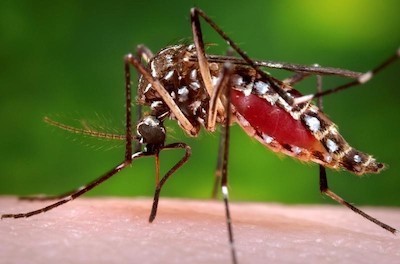
Health officials in Tarrant County, Texas, have confirmed that a mosquito tested positive for the West Nile Virus. This would be the first case in 2020. There have been no human cases reported this year, officials said in a news release.
The mosquito apparently came from an unintegrated part of northwest Tarrant County. The Tarrant County Public Health Department arranged to have workers conduct ground spraying in the area on Friday and Saturday if the weather permits.
Seasonal surveillance for West Nile Virus began on April 1. Since then, 188 mosquito samples have been tested for the West Nile virus, officials said. Tarrant County officials reported the first West Nile Virus-positive mosquito in the city of Colleyville last year in June.
The county department of health urges residents to take steps necessary to protect themselves against the virus. These measures include dumping any stagnant water on their property, using insect repellent, and dressing in long pants and long sleeves whenever possible.
What is the West Nile Virus?
According to the World Health Organisation, the West Nile virus is primarily transmitted to people through the bites of infected mosquitoes and can cause a deadly neurological disease in humans. However, relatively 80% of people who are infected will not display any symptoms.
The West Nile Virus is commonly found in Africa, Europe, the Middle East, North America, and West Asia. It is maintained in nature in a cycle linking transference between birds and mosquitoes.
The Culex species of mosquito is responsible for spreading the West Nile virus. The predominant vector species in the United States are Culex pipiens, Culex tarsalis, and Culex quinquefasciatus. These mosquitoes usually feed in the evening until morning.
The virus is known to cause severe illness and death in horses. Vaccines are available for horses but not yet available for people.
The Centers for Disease Control and Prevention says that the most efficient way to prevent infection from West Nile virus is to avoid mosquito bites. Mosquito bites can be prevented by using insect repellent, wear long-sleeved shirts and pants, treating clothing and gear with permethrin, and taking steps to control mosquitoes indoors and outdoors.
Human Cases of the West Nile Virus
A study published in 2015 in The American Journal of Tropical Medicine and Hygiene discusses the first human case of West Nile Virus Encephalitis in Brazil. A Brazilian ranch worker with encephalitis and flaccid paralysis was assessed in the regional Acute Encephalitis Syndromic Surveillance Program.
He was the first Brazilian patient who met the CDC confirmation criteria for West Nile virus disease. The study denoted that patient's overlaying neurological manifestations attributed by several infections demonstrates the importance of human acute encephalitis monitoring.
Another report from the Illinois Department of Public Health validated a human case of the West Nile virus in Illinois for 2019. A Chicago resident in his 70s became ill in late July.
It is encouraged that the residents in Tarrant Country practice effective preventive measures such as the 3R's: reduce, repel, and report to keep everyone safe from the Nile West infection.
© 2025 ScienceTimes.com All rights reserved. Do not reproduce without permission. The window to the world of Science Times.












